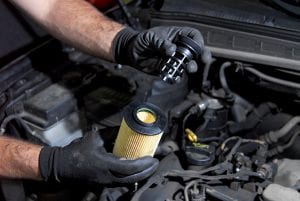Fuel consumption and the economical effect your vehicle has is down to a number of factors including the make and model, however, there are also a number of ways you can consciously save fuel and money and cut down on the pollutants being released. To create a more eco-friendly driving experience, you’re responsible for the maintenance of a vehicle throughout its lifetime and also the driving habits performed. This article will cover each aspect of economical driving whilst also looking into the eco-performance feature we find in many modern-day cars that are contributing to a global target of reducing vehicle pollution.

Tips for economical driving
The way you drive can contribute greatly to the amount of fuel used and gases being released. Apart from the obvious tip of choosing alternative transport, there are several other ways you can drive more economically.
- Smooth acceleration and breaking
- Rolling instead of regular stopping and starting e.g. when waiting in traffic or at lights
- Changing gears efficiently and in good time
- Be sparing with air conditioning
- Limit electrical use e.g. rear window heaters, chair heaters or headlights during the day
- Stick to the speed limit, more speed means more fuel
- Utilise cruise control when it is safe to do so
- Plan other ways of transport e.g. walking or cycling
- Limit the weight in your car as this uses extra fuel
- Plan your route efficiently and take note of milage
- Use eco mode if available

Car maintenance for eco-friendly driving
Aside from driving habits and the way you are getting about, making sure your car is in the best possible condition and working how it should will have many economic benefits. There are a number of issues and errors which can contribute to increased fuel consumption and pollution so keeping on top of vehicle maintenance is a must. Here are some ways you can drive more economically through maintenance and servicing.
- Get your car regularly serviced, this is typically done once a year
- Use the right specification of engine oil
- Check your tyre pressure before long journeys and make sure they are always inflated to the correct level
- Complete yearly MOTs and modify any issues
- Replace car filters

What is eco mode?
Most modern cars have an eco mode setting to improve a vehicle’s fuel economy. In short, this is a more eco-friendly way of travelling. When this mode is activated, the engine reduces its power output so it isn’t actively working as hard, gas pedals become less responsive and acceleration is slower. The benefits of eco mode include less fuel consumption, energy consumption, fewer emissions and it puts less pressure on the car’s engine and battery.
How does eco mode work?
Short for economical mode, eco mode can be switched on and off and when activated, the car’s throttle becomes less reactive and the engine is less powerful. This modern mode doesn’t make the car travel slower but it does slow down acceleration so is best used when travelling at a relaxed pace where the gas and brake paddles aren’t being heavily used. This system might also lower the air conditioning output and dim interior lighting.
When to use eco mode
The ideal time to activate this mode is when you’re driving at a slower pace, typically under 45mph. Ideal for day-to-day use and leisurely driving, this system can provide an efficient way to save fuel, save money and make an eco-friendly impact. Many road users will active eco mode when they’re running errands, sitting in stop-start traffic or driving through busy cities instead of long-distance driving.
Car filters by Filter Services
Planning a long journey or just want to make sure your car is working its best? Filter services stock a selection of car filters including oil filters, air filters, lube filters, pollen and cabin, hydraulic and coolant filters. Supplying the biggest names in the filter industry including Hifi and Donaldson, we also offer free advice and will ensure that you are getting exactly what you need for a smooth and safe journey.
